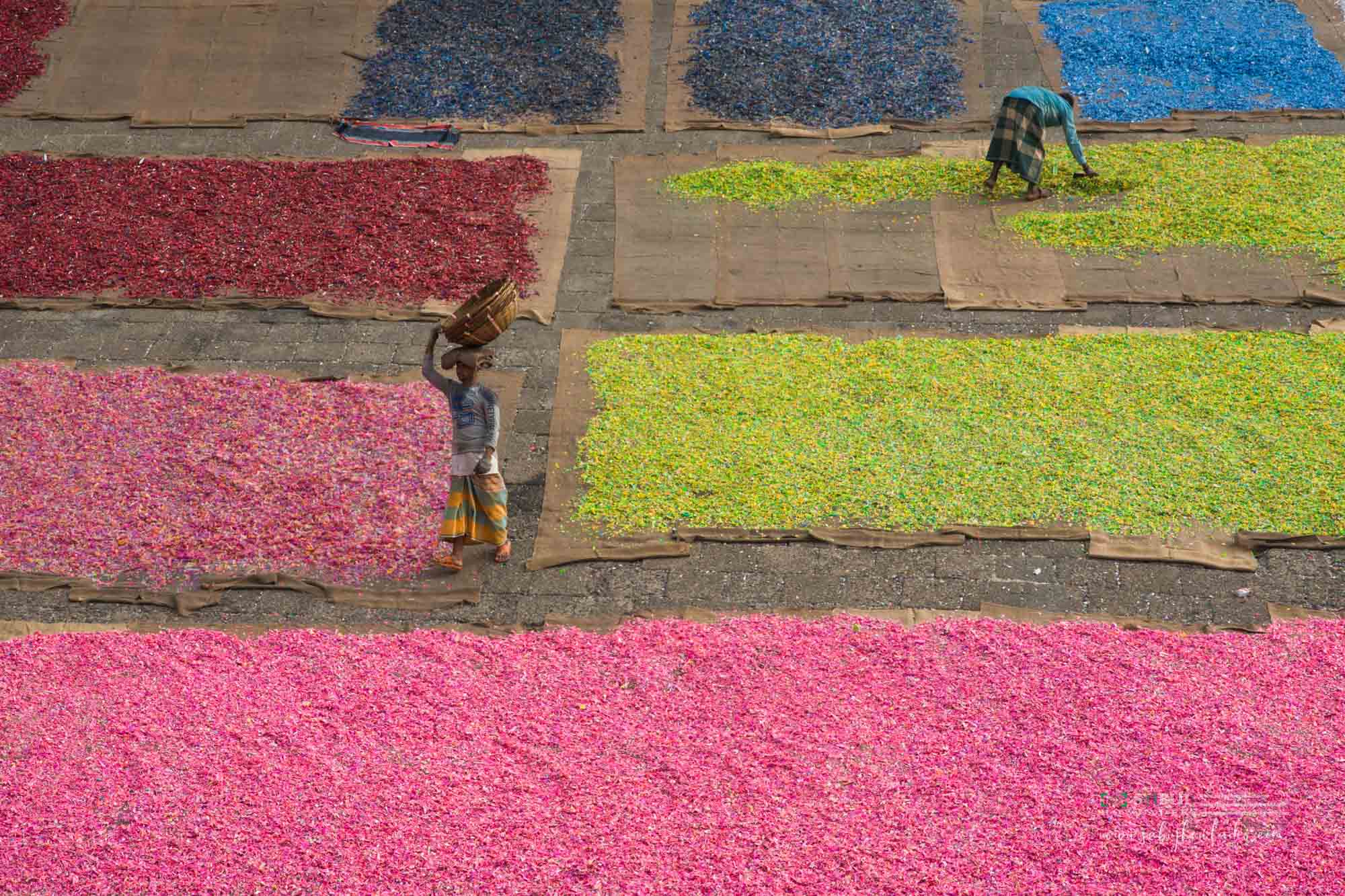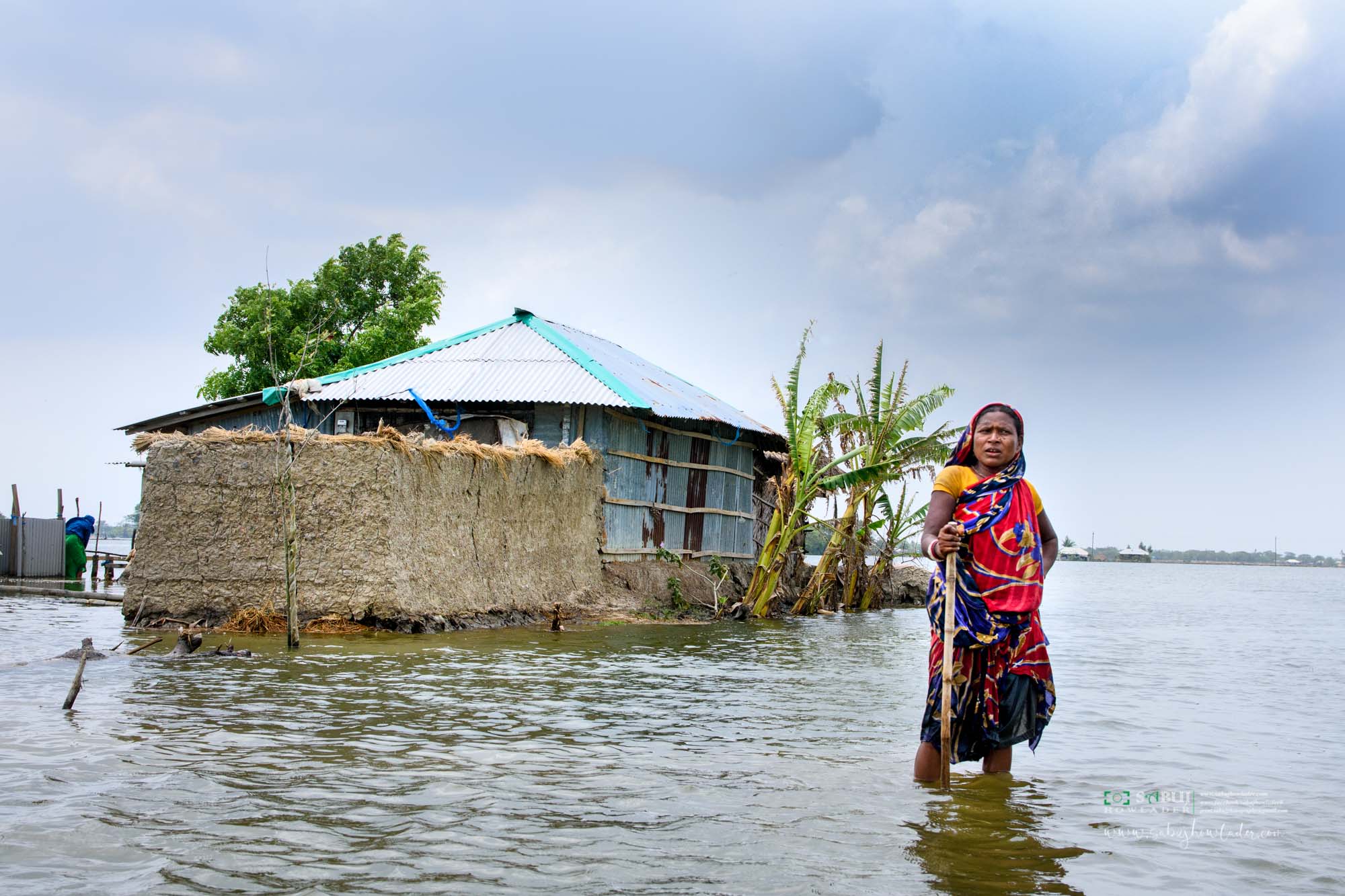“Waste to Wealth” is a photography project that aims to aware people of environmental pollution caused by plastic wastage and ways of plastic recycling. There are lots of reasons responsible for environmental pollution in Bangladesh.
In Bangladesh, the consumers throw the waste away anywhere and the collectors called ‘Tokai’ (poor male & female children) collect the waste from different places and sell them to respective vendors at a very cheap price. the sorting process is done manually by the types and colors.
The sorted plastic wastes are sent to the shredder to cut into flakes.
Cleaning is the critical phase of the recycling process.
All cleaning process is done manually, normally in the river, canal, or pond and dried in sunlight at the bank of the river or in the open field.
This is the last phase of recycling. After melting the reprocessed plastics the liquid mixture is shot into molds or extruded to make a new plastic product.
Bangladesh, home to 160 million (approx) people, is among the countries most vulnerable to the effects of climate change. Bangladesh has been identified as major hazards for floods, cyclones, droughts, tidal surges, tornadoes, earthquakes, river erosion, water logging, rising water and soil salinity. Bangladesh is at the forefront of climate change impacts. Over the last decade, it has seen some of the strongest storms on record, massive flooding, and exponential property losses. The aim of this project is to visualize the vulnerability of the country due to global warming and climate change.


